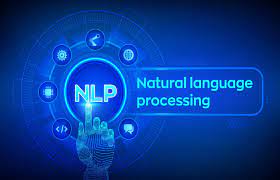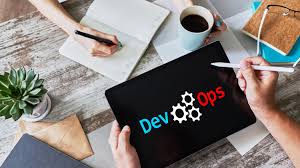Content
Here are some ways to implement quality in all facets of development … An intensive, highly focused residency with Red Hat experts where you learn to use an agile methodology and open source tools to work on your enterprise’s business problems. Our 5-day immersive training unites practical application of tools with DevOps implementation strategies and best practices. DevOps advocacy is often undervalued or overlooked entirely, but is arguably the most important role of a DevOps engineer. The shift to a DevOps culture can be disruptive and confusing to the engineering team members. As the DevOps subject matter expert, it falls to the DevOps engineer to help evangelize and educate the DevOps way across the organization. A recent survey shows that DevOps will still remain in high demand.
Which course is best for high salary?
- Doctor. MBBS.
- Engineering. BE/B.Tech.
- Business. BBA.
- Legal. LLB.
- Research. B.Statistics.
- IT Engineer. BCA.
- Hospitality. B.Sc Hotel Management.
- Information Technology. B.Sc IT.
At the same time managing containers brings its own challenges, and experience with the class of tools known as “container orchestrators” (e.g. Docker Swarm or Kubernetes) becomes a necessary skill for the DevOps engineer. The technical skills required of a DevOps engineer will vary depending on the team structure, technologies, and toolsets in use. Yet strong communication and collaboration skills are essential. It’s also important for a DevOps engineer to have a solid understanding of all the components of a delivery pipeline, and to know the pros and cons of available tools and services. Once you’ve learned the basics of coding and scripting, you can start applying these skills to real-world DevOps tasks. For example, you can use Puppet or Chef to automate the provisioning of infrastructure, or you can use Ansible to automate the deployment of applications.
Red Hat legal and privacy links
This is a DevOps expert who promotes and develops DevOps practices across the organization. The DevOps evangelist will typically have a strong technical background, but the focus of the role is on interpersonal communication and process improvement. It’s important for a DevOps engineer to communicate and collaborate effectively with teams, managers, and customers. These so-called “soft-skills” are often overlooked and undervalued, but the success of DevOps relies heavily on the quality and quantity of feedback across the entire value stream. So basically he should also know Java or any high level programming language. This article is absolutely fantastic and pretty comprehensive, after reading this article I couldn’t stop myself sharing with LinkedIn community.
- Do hands-on on all the core services and understand how it works.
- Also, if you look at AWS CDK or IaaC tool like Pulumi, you can use a programming language to define the infrastructure and do test-driven infrastructure development like you develop applications.
- The purpose of such roles is to ensure that any new application software being released into production meets quality and security standards and has the appropriate management approvals.
- However, it is best to have hands-on knowledge of container technology like Docker or podman.
- You can publish tutorials, learnings, and experiences on your blog.
For example, one of the most valuable returns on a DevOps investment is the ability to deliver faster feedback to developers. A DevOps engineer will often have to work with QA to improve the speed, efficacy, and output of testing methodologies.
Python For DevOps: Guide for DevOps Engineers
An overall understanding of Infrastructure components is a must for a person who wants to practice or work in a DevOps environment. For example, when you get into meetings with network/security teams, with a fair amount of infrastructure knowledge you can ask the right questions, understand what they are saying and collaborate better.
Sharing and caring fellow engineers around the world makes me happy every day. The way you explained concepts encouraging everyone working together makes each and every organization to achieve their goals without any barriers. In reality, If you are hired as a “DevOps Engineer,” you might fall in any one of the following teams in an organization.
System architecture and provisioning
These are the people who have been historically described as “computer programmers” before the rise of agile thinking. These roles were particularly important when software releases were more risky.
Since using the right tools are essential to DevOps practices, the DevOps engineer must understand, and be able to use, a variety of tools. These tools span the DevOps lifecycle from infrastructure and building, to monitoring and operating a product or service.
DevOps skills, training and certifications
These skills all point to a growing recognition that software isn’t written in the old way anymore. Where software used to be written from scratch in a highly complex and lengthy process, creating new products is now often a matter of choosing open source components and stitching them together with code. As for the infrastructure transparency of the entire cloud stack, I think nclouds is also a great service to look at. For example, there are DevOps engineer jobs that concentrate on platform development.
What is DevOps salary?
Devops Engineer salary in India ranges between ₹ 4.2 Lakhs to ₹ 12.4 Lakhs with an average annual salary of ₹ 6.0 Lakhs. Salary estimates are based on 41.8k salaries received from Devops Engineers.
A DevOps engineer should go beyond writing automation scripts and understand advanced software development practices and how to implement agile development practices such as code reviews and using source control. Continuous integration and continuous Delivery (CI/CD) are core practices of a DevOps approach to software development, and enabled by a host of available tools. The most fundamental function of any CI/CD tool or set of tools is to automate the process of building, testing, and deploying software. With containerization, a technology popularized by Docker, the code for the application and its runtime environment are bundled in the same image. This makes traditional configuration management tools less necessary.









